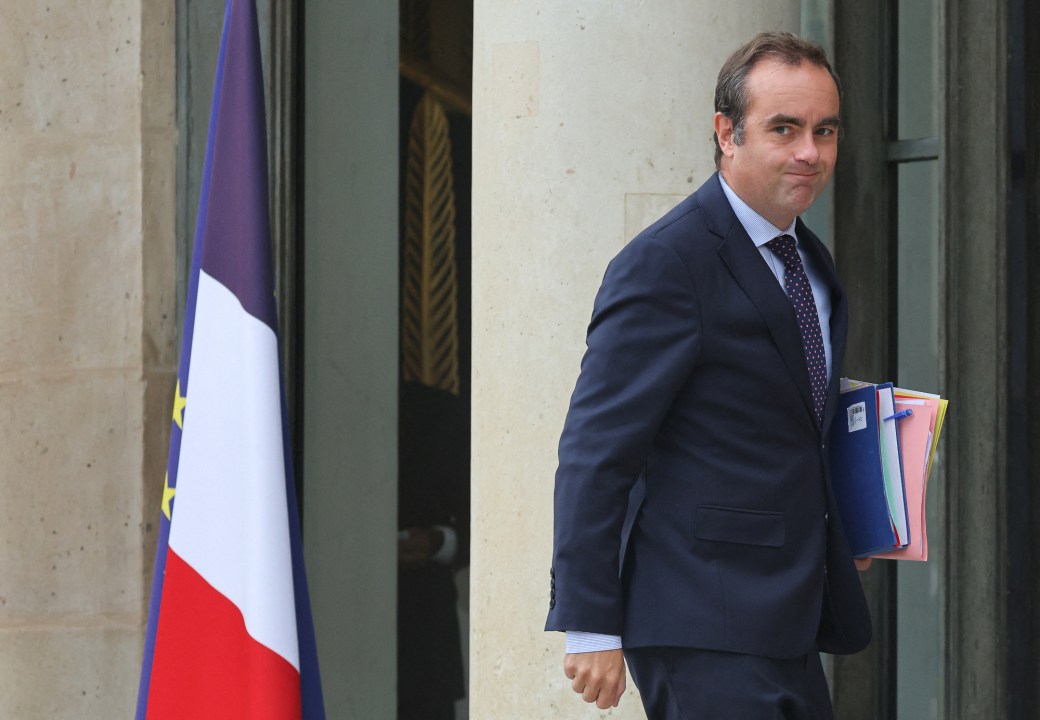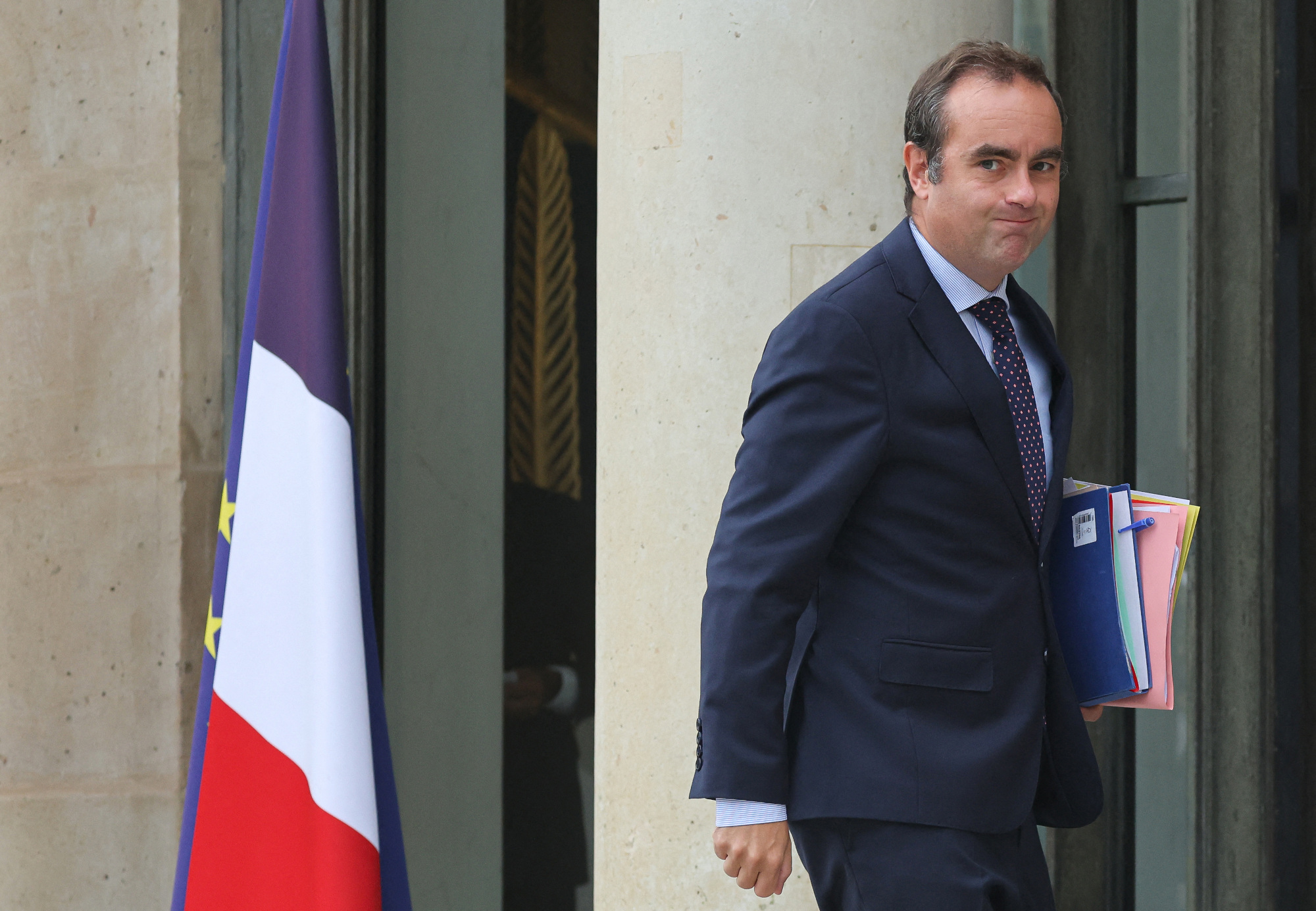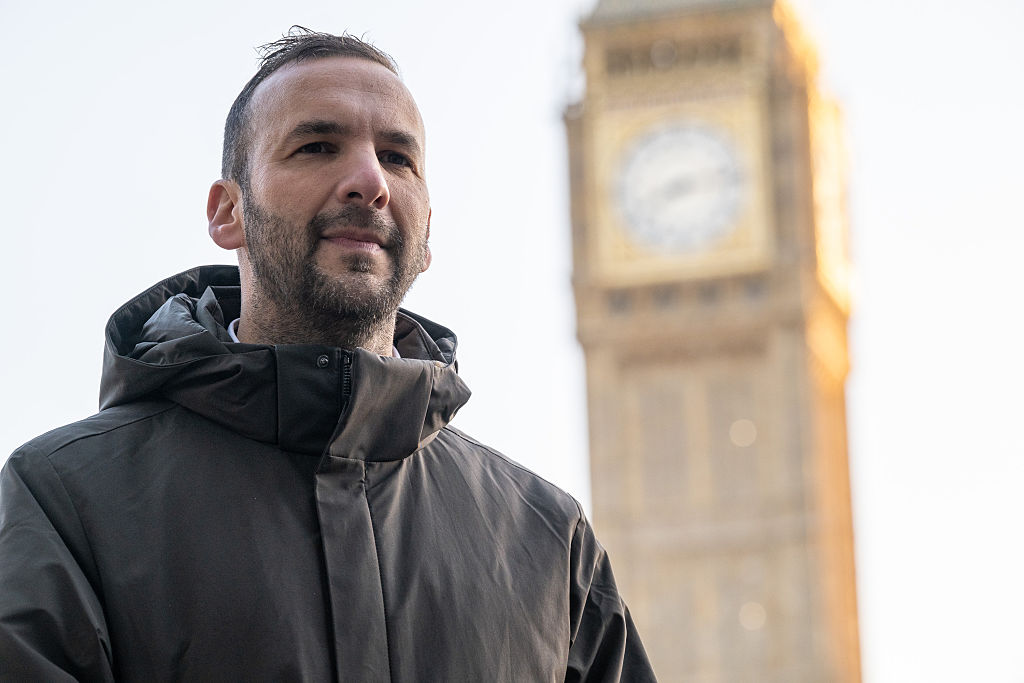Emmanuel Macron has named Sébastien Lecornu, a loyal confidant, as France’s new prime minister after François Bayrou’s resignation. At 39, Lecornu is Macron’s last stand, a bid to reset a deadlocked presidency. Lecornu is one of Macron’s most trusted allies. His appointment is a deeply personal choice, signalling that Macron is circling the wagons and relying on his innermost circle as the crisis deepens. Lecornu is not a compromise candidate or a unifying figure, he’s Macron’s man, appointed to hold the line and protect the president’s political legacy. Lecornu inherits a fractured parliament, a looming budget crisis and a country on the brink of strikes. There is no doubt that he is accepting a poisoned chalice.
Lecornu is not a compromise candidate or a unifying figure, he’s Macron’s man, appointed to hold the line and protect the president’s political legacy
As defence minister, Lecornu has been at the centre of Macron’s Ukraine policy, shaping France’s military commitments and rebuilding ties with Nato. He has reportedly spent more time with Macron in recent months than either of his two previous prime ministers, François Bayrou or Elisabeth Borne, and even more time than Michel Barnier during his short-lived tenure at Matignon. Insiders describe Lecornu as discreet and disciplined. A man who knows how to keep the president’s confidence. He is also seen as personally close to Brigitte Macron, a reflection of how deeply embedded he is within the president’s inner circle.
His appointment underscores just how much this decision is about loyalty and trust. At the Elysée palace, his loyalty to the president is taken as absolute. It would have been hard to find anyone closer to Macron. Lecornu’s appointment is less about compromise than continuity. It’s Macron doubling down, not reaching out.
To parliament, Lecornu’s appointment is a defiant message: the president will not bend to demands for a broader coalition or a left-leaning premier. Instead, Macron is betting on Lecornu’s loyalty, even at the risk of another no-confidence vote. To the French public, braced for nationwide strikes, it’s a slap in the face, a signal that Macron remains cocooned in his inner circle, deaf to the clamour for change.
Lecornu’s story is one of remarkable political survival. The only minister to have remained in government since Macron was first elected in 2017, he’s outlasted countless reshuffles and a snap election. Starting his career at just 19 as France’s youngest parliamentary assistant, Lecornu rose through the ranks of Les Républicains before switching allegiances to Macron, carefully cultivating influence across the political spectrum. Behind his low-key public persona, he’s regarded within Paris’s power circles as a skilled operator, a survivor able to adapt to shifting political winds.
As armed forces minister, Lecornu became the face of France’s military following the crisis in Ukraine, shepherding through French military spending plans. A reservist in the Gendarmerie, he forged close ties with his German counterpart Boris Pistorius.
On X Marine Le Pen reacted to Lecornu’s appointment by accusing Macron of being ‘bunkered with his small circle of loyalists’. She wrote: ‘The President is firing the last cartridge of Macronism. After the inevitable upcoming legislative elections, the Prime Minister will be Jordan Bardella.’
Jean-Luc Mélenchon, leader of the hard left LFI, was equally scathing. On X, he mocked Macron’s decision: ‘Macron’s response to the ousting of Bayrou: from now on, it’s absolutely as it was before. Only Macron’s own departure can put an end to this sad comedy of contempt for Parliament, voters, and political decency’.
The Socialists have reacted in much the same way. Olivier Faure, leader of the socialist party, posted: ‘Macron persists and signs. He heard nothing of the vote of no confidence against Bayrou. He pursues his same policy with one of his loyalists, Sébastien Lecornu. The left must prepare to govern, as it won the legislative elections. Another path is possible!’
Faure’s message underscores the Socialist party’s frustration that Macron ignored their calls for a left-wing prime minister, particularly after the New Popular Front, which includes the Socialists, secured the most seats in the 2024 legislative elections. His reference to ‘another path’ signals the Socialists’ push for higher taxes on the wealthy, reversing Macron’s pension reforms, and a broader break with Macronism itself.
Le Pen’s positioning is careful and deliberate. She has avoided promising outright censure of Lecornu’s government, but she has also refused to commit National Rally support. She doesn’t need to bring the government down herself. Without at least passive cooperation from either Les Républicains or the National Rally, no prime minister can survive. By keeping her options open, she forces Macron towards the decision he most wants to avoid – dissolving parliament and calling elections.
The stakes for Macron are enormous. Lecornu’s first task will be to form a government, and this is where the tightrope begins. Any cabinet choices will require negotiations to avoid alienating both wings of the polarised National Assembly. Appointing figures too close to the left risks provoking Les Républicains. Leaning too far right risks losing the centre-left allies who still support Macron’s Renaissance bloc. After Elisabeth Borne’s short-lived tenure, Michel Barnier’s failed attempt at bridge-building, and François Bayrou’s humiliating defeat, Macron cannot afford another prime minister to be censured into irrelevance. Yet the maths hasn’t changed. Every attempt at compromise has failed. Lecornu steps straight into the same trap.
Some are speculating that Macron might be forced to resign to resolve the crisis. That seems highly unlikely. It is not in his character to walk away, and he has repeatedly said that he owes it to the French electorate to serve out his term. For Macron, staying until the end of his mandate is not just a political calculation, but a point of principle.
Meanwhile, Macron’s timing makes his calculation obvious. Lecornu’s appointment comes on the eve of nationwide strikes. The Bloquons Tout movement, a decentralised, gilets-jaunes-inspired coalition, today launches disruptive blockades designed to paralyse infrastructure. From 18 September, France’s largest unions join in coordinated national strikes, threatening to shut down transport, energy, and key supply lines. Anticipating flashpoints, the government has mobilised an extraordinary 80,000 police and gendarmes to control an estimated 100,000 demonstrators. This is a striking symbol of a government braced for confrontation, not compromise.
What began as anger over Bayrou’s failed budget plan has morphed into a revolt against Macron’s presidency. Calls for new parliamentary elections are growing louder on the streets, just as they are in parliament. Lecornu steps into Matignon with neither the markets nor the public on his side.
The Elysée hopes Lecornu’s appointment will project control, but it’s unlikely to dampen the protests. There are increasing demands for fresh elections, a clean break, and an end to Macron’s presidency in all but name.
And then there is the looming budget crisis. By early October, the government must submit its 2026 budget. Without a working majority, passing it looks close to impossible. Missing the deadline would mean rolling over last year’s budget unchanged, worsening France’s €44 billion deficit, infuriating Brussels, and triggering a downgrade. Both Fitch and Moody’s have warned of ‘heightened risks’ to France’s creditworthiness, while bond yields are already creeping past 3.2 per cent. Markets are signalling impatience. Macron has bought himself time, but on credit.
Macron has staked his legacy on Sébastien Lecornu, his ultimate loyalist, betting he can salvage what Borne, Attal, Barnier, and Bayrou could not. But this is no mere reshuffle at Matignon. Lecornu steps into a vortex – without a parliamentary majority, with strikes set to paralyse the country, markets nervous at France’s €44 billion deficit fix, and rivals pushing for elections. Each new prime minister deepens the chaos, squandering precious time as France teeters on the edge. Lecornu’s loyalty may bind him to Macron, but it won’t shield him from a republic unravelling.









Comments